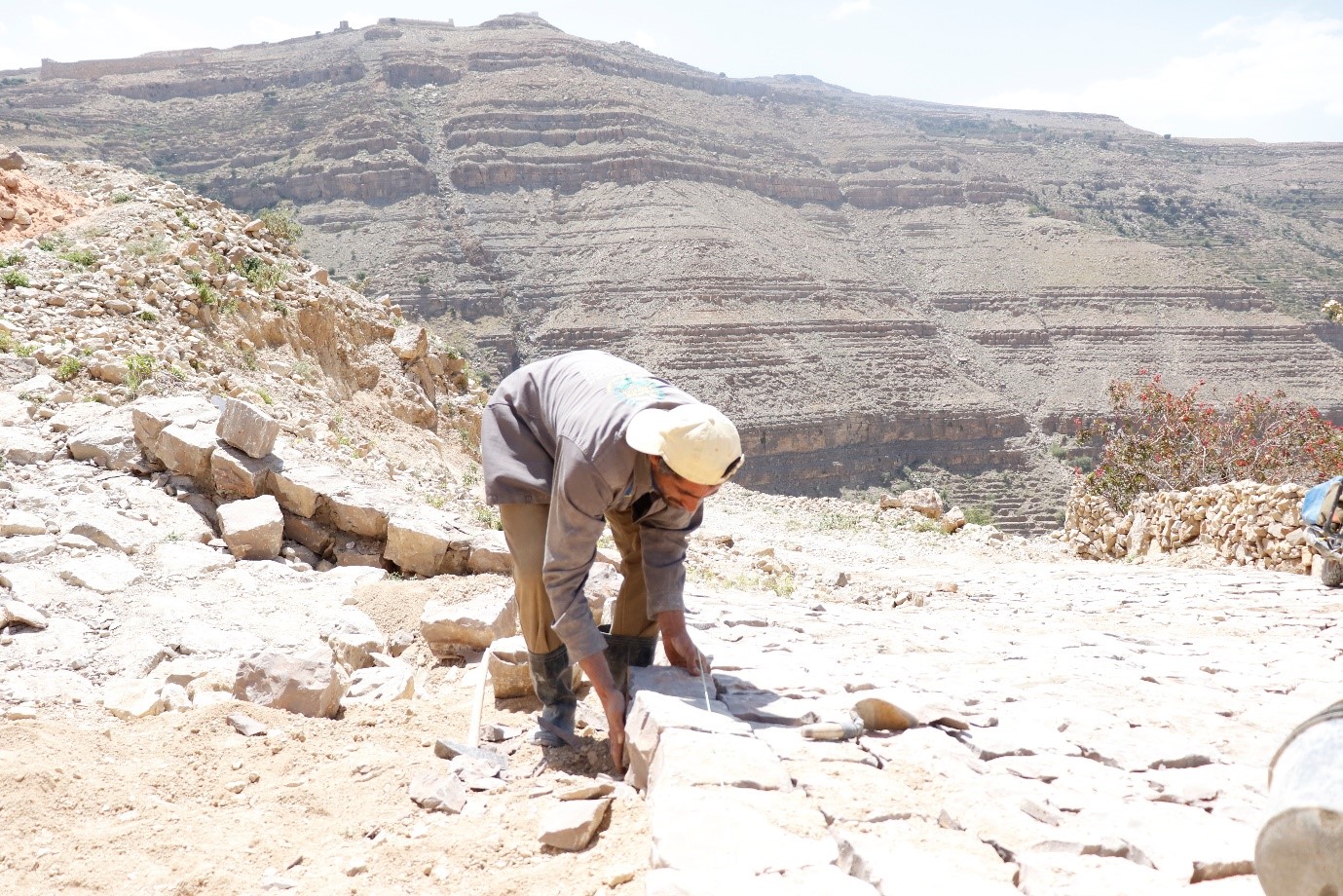The crisis in Yemen has left many Yemenis jobless and unable to provide the basics for their families. In rural areas, employment opportunities are extremely limited, and the roads are rugged and dangerous. It takes hours to reach the nearest health centres or markets.
Yahya Seraj is a 40-year-old resident of Beit Alhanash village in Alsood district of Amran governorate. He used to work as a teacher at one of the schools in the district and has a diploma certificate.
“I used to earn 35,000 Yemeni Riyals,” he says. “Although it wasn’t enough for a decent life, things were stable and we were able to buy what we needed. I used to go to school in the morning until noon, then work at the farm until the evening. And that is how life went on.”
The war escalated in 2015 and the situation has continued to deteriorate since then. Employees lost their sources of income and agriculture was affected due to the lack of fuel to water the farms and market the products.
“I lost not only my salary, but I also couldn’t continue working as a farmer,” says Yayah sorrowfully. “I had to go to Hajjah governorate and laboured there to earn some money for my family.” Many people resorted to begging to feed their children and countless others had to seek any kind of work in different governorates.
Yahya suffered from a spine problem and was advised to stay at home. “I stayed home for four months straight with no income to buy the necessary medications for my sickness. My nine-month-old baby boy died due to a heart problem. I spent three months trying to collect money for his surgery, but he passed away because we couldn’t afford the treatment he needed.”
As well as the economic hardships faced by villagers, roads are uneven and risky in Beit Alhanash and drivers used to refuse to take pregnant women or patients to the hospital. One day, a driver was driving along the road when his car skidded and fell down the hill. Sadly, an elderly woman died because they were not able to take her to the nearest health centre in the district.
Pregnant women had to be taken days before their delivery due date to the district to avoid maternal and newborn deaths. Many other pregnant women resorted to traditional methods and newborn babies faced either death or sickness due to the lack of appropriate nursing care.
In response to these many needs, CARE intervened with a cash for work project in Beit Alhanash. Locals and jobless people benefited from this project which has created not only employment, but has also taught them life skills to help them secure further income.


